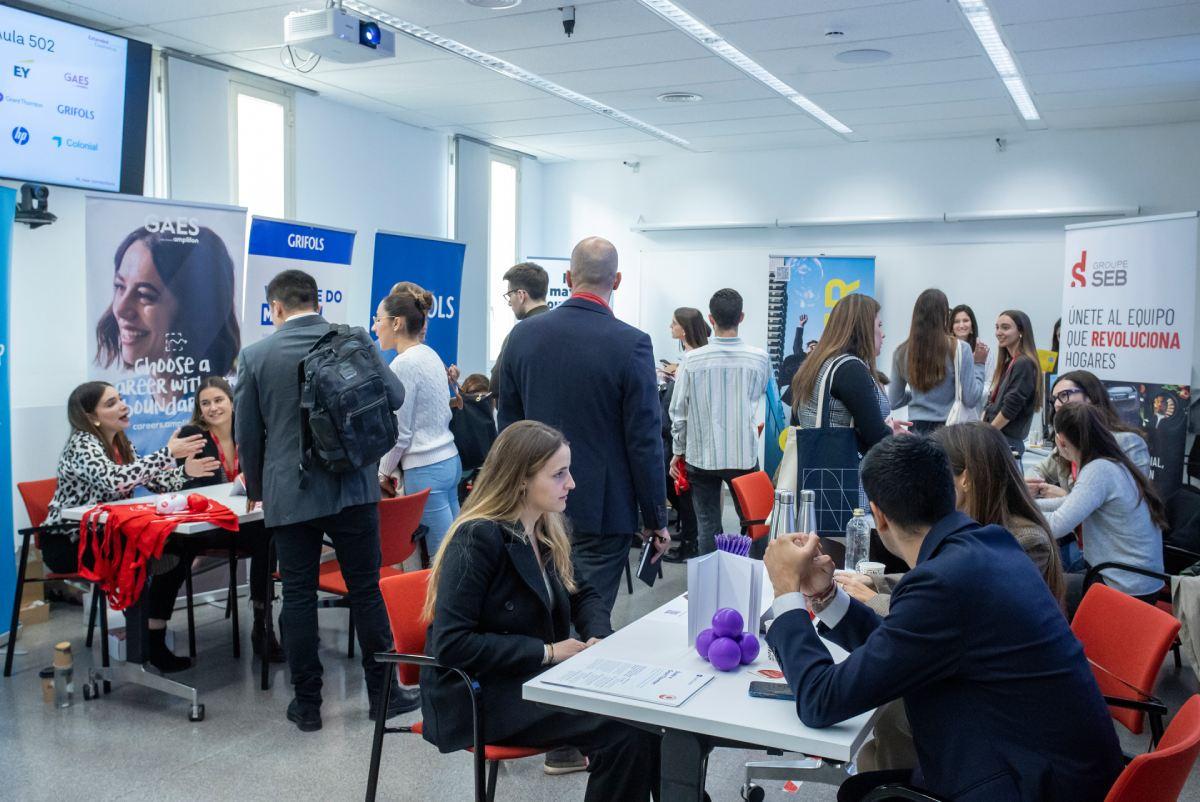
- About UPF-BSM
- Programs
- Faculty and research
- Companies and Organizations
- News & Events
Seven employability trends in 2024
15 Enero - 2024
Brigitte Pérez, Head of Career Services UPF-BSM
--
What is the outlook for the new year in terms of the UPF Barcelona School of Management’s main pillars of action? This new installment in the series of articles with our experts' forecasts for 2024 looks at the issue of employability and recruitment with the reflections of the Head of Career Services at the UPF-BSM, Brigitte Pérez Morey.
According to Brigitte Pérez Morey, there are seven areas that will be especially 'hot' in employability and recruitment matters in 2024: generative AI, soft skills, remote working, diversity and inclusivity, sustainable business, data driven recruitment, and support for emotional wellbeing. Let’s take a look at each of them one by one.
Without a doubt, one of the most talked-about areas in 2024 will be the same topic that is hot everywhere: generative artificial intelligence (AI). “In addition to its numerous applications in all kinds of fields and domains, there are plenty of others that are perhaps not so well known, such as customer experience -creativity in marketing, virtual assistants, etc.-, as well as internal operations such as recruitment processes themselves, such as assisted virtual interviews, etc.”, explains the UPF-BSM’s Head of Career Services.
Secondly, soft skills, such as emotional intelligence, problem and conflict management and resolution, leadership and empathy, “are skills that, as automation progresses, will become more and more highly valued in the near future”, she forecasts.
On another note, having spread around the world during the pandemic, remote working “started out as an obligation, but has become an opportunity to access global talent, reduce costs and improve work-life balance”, reflects Pérez Morey.
The exponential increase in the amount of data we manage is something that also applies to recruitment, so companies will need to implement data-driven recruitment strategies that will help them to improve the accuracy and effectiveness of the hiring process, to optimize the hiring life cycle and enable strategic talent acquisition. “Moreover, it will also be necessary to tackle the always tricky issue of data privacy and ethics”, adds the expert.
The fifth area that will be hot in 2024 is sustainable business. Pérez Morey feels it is a concept that is here to stay. Furthermore, companies will need to make a strong commitment to energy efficiency and the use of clean energy. In fact, according to a recent article in Forbes magazine, consumers prefer companies that have a strong commitment to reducing their environmental footprint.
Another crucial area will be ongoing support to mental wellbeing that has increased in recent years and will continue to do so over the course of 2024. Access to mental health resources, promoting healthy habits and cultivating a positive work environment will be some of the key points for preventing burnout.
The seventh and final trend for 2024 is diversity and inclusivity: companies will need to work towards more inclusive environments and the recognition of uniqueness through standards and legislation that demonstrate their ethical commitment.
So, how is recruitment going to change in 2024?
“In 2024 and beyond, companies should strive to create recruitment processes that are transparent, efficient and engaging, and focus on the candidate experience”, explains Brigitte Pérez Morey. Moreover, companies should focus on healthy workplaces, prioritize wellbeing and mental health, and encourage internal mobility and employee retention through continuous development programs.
“The trend we are heading towards is that we will work better, and in a more flexible way, with less physical presence in the workplace, but with more feedback, and in a more relevant way”, she predicts, with employee wellbeing and productivity being the priority.
Moreover, teams will be increasingly distributed globally. Therefore, “it will be necessary to have collaborative tools that allow working in different time zones, and to be flexible with respect to working outside traditional office hours”, says Pérez Morey.
Finally, other challenges we will undoubtedly face the year we have just started will include the integration of diversity and, in terms of digital health, the management of digital disconnection.